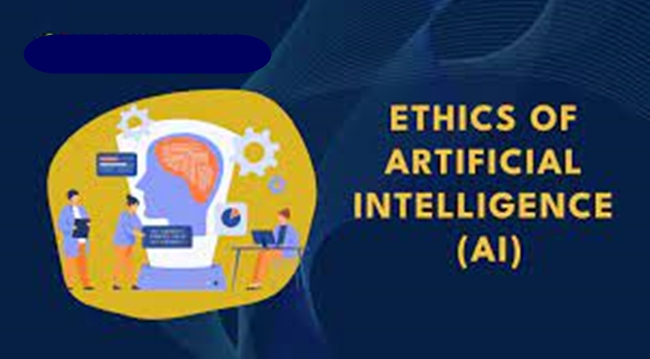In this article, we discussed the meaning of ethics, artificial intelligence, ethics of AI and we also discussed about its role.
Definition
Ethics: may refer to the theoretical study of the concepts of moral right and wrong and moral good and bad, to any philosophical theory of what is morally right and wrong or morally good and bad, and to any system or code of moral rules, principles, or values. It is also based on well-founded standards of right and wrong that prescribe what humans ought to do, usually in terms of rights, obligations, benefits to society, fairness, or specific virtues.
Artificial intelligence: is a field of science concerned with building computers and machines that can reason, learn, and act in such a way that would normally require human intelligence or that involves data whose scale exceeds what humans can analyze.: It is the ability of a machine to perform cognitive functions we associate with human minds, such as perceiving, reasoning, learning, and problem solving.
This is widespread across many industries. Industrializing tasks that don’t require human intervention saves money and time, and can reduce the risk of human error.
AI Ethics: refers to the principles that govern AI’s behavior in terms of human values. AI ethics helps ensure that AI is developed and used in ways that are beneficial to society. It involves a broad range of deliberations, including fairness, transparency, accountability, privacy, security, and the potential societal impacts. It is the ability of a machine to perform cognitive functions we associate with human minds, such as perceiving, reasoning, learning, and tricky resolution. AI ethics is a system of moral principles and techniques intended to inform the development…
The Role of Ethics in Artificial Intelligence
Developers and researchers play a crucial role in creating AI systems which prioritize human agency and oversight, address bias and discrimination, and are transparent and explainable.
Policymakers and regulators establish laws and regulations to govern the ethical use of AI and protect individuals’ rights.
Business and industry leaders ensure their organizations adopt ethical AI principles so that they’re using AI in ways that contribute positively to society.
Civil society organizations advocate for the ethical use of AI, play a role in oversight, and provide support for affected communities.
Academic institutions contribute through education, research, and the development of ethical guidelines.
End users and affected users, like consumers and citizens, have a stake in ensuring that AI systems are explainable, understandable, fair, transparent, and advantageous to society.
Many businesses establish committees led by their senior leaders to shape their AI governance policies. For instance, at SAP, we formed an advisory panel and an AI ethics steering committee, consisting of ethics and technology experts, to integrate our ethical AI principles throughout our products and operations. These principles prioritize:
Proportionality and doing no harm
Safety and security
Fairness and non-discrimination
Sustainability
Right to privacy and data protection
Human oversight and determination
Transparency and explain ability
Responsibility and accountability
Awareness and technical literacy
Multistakeholder and adaptive governance and collaboration.
CONCLUSION
AI ethics is a force for good that helps mitigate unfair biases, removes barriers to accessibility, and augments creativity, among many other benefits. As organizations increasingly rely on AI for decisions that impact human lives, it’s critical that they consider the complex ethical implications because misusing AI can cause harm to individuals and society—and to businesses’ bottom lines and statuses.


